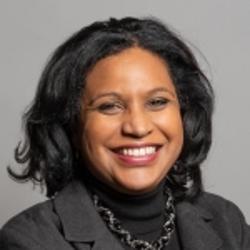Education and Training: Coastal Areas
(asked on 15th November 2024) - View SourceQuestion to the Department for Education:
To ask the Secretary of State for Education, what steps she is taking to improve access to (a) university and (b) other further education and training opportunities for people living in coastal resorts in (i) the South West and (ii) the rest of the country; and what assessment she has made of the implications for her policies of trends in the level of educational attainment in those areas.
This new government will be mission-led, with the Opportunity Mission building opportunities for all by giving every child the best start in life, helping them achieve and thrive, build skills for opportunity and growth and ensure family security.
Building skills for opportunity and growth is key to the Opportunity Mission. The department will ensure every young person around the country, including in coastal areas, can follow the pathway that is right for them. Whether built through high quality apprenticeships, colleges or universities, skills give people the power to progress into good jobs and seize opportunity. We will support the aspiration of every person who meets the requirements and wants to go to university, regardless of their background, where they live and their personal circumstances. Opportunity should be available to all, and it is our aspiration that no groups are left behind.
Local Skills Improvement Plans (LSIPs) support the department’s long term priority to drive local economic growth by reshaping the skills system to better align provision of post-16 technical education and training with local labour market needs and to support learners to gain the skills they need to get good jobs.
Over 50% (20 out of 38) of LSIP areas have coastal towns and communities within their geographies and in these areas, the designated employer representative body leading the LSIP may have engaged with coastal industry businesses and businesses and supply chain links operationally based in coastal towns and communities, as well as relevant local leaders and national sector and trade bodies.
For example, the Dorset LSIP has identified skills gaps within the marine industry and is in consultation with local providers around the introduction of Level 3 Marine Electrician and Marine Engineer Apprenticeships. These qualifications would help to resolve skills and labour shortages in coastal areas and build clusters of expertise in priority local industries.
A Local Skills Improvement Fund (LSIF) was introduced to support local action. For example, the Cornwall and Isle of Scilly LSIP identified a need to improve sustainability skills in the local construction sector. As a result, Truro and Penwith College received £1.07 million to fund the development of a Level 3 Design, Installation and Commissioning of Electrical Energy Storage Systems, as well as the development of an industry-led Higher Technical Qualification for Construction in Cornwall.
In the South West there are a number of colleges within coastal locations or who are close enough to readily attract learners from coastal areas. All colleges have specialisms to complement a general offer delivering programmes from foundation level through levels 1 to 3 and then, in most cases, offering higher education provision. Further education colleges often work in partnership with key employers and stakeholders to ensure specialist provision meets local and regional need.
The government has established an independent Curriculum and Assessment Review, covering ages 5 to 18, chaired by Professor Becky Francis CBE, an expert in education policy, including curriculum and social inequality. The review will look closely at the key challenges to attainment for young people, and the barriers which hold children back from the opportunities and life chances they deserve, in particular those who are socioeconomically disadvantaged, or with special educational needs or disabilities.

